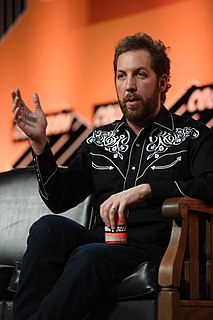A Quote by Paul Laffoley
[Buckminster Fuller] was quite a Newtonian in certain ways. But he was an excellent inventor and kept people on their toes.
Related Quotes
I spent three years there and encountered great teachers who gave me enough stimulation to last me for the rest of my life - Josef Albers, painter; Buckminster Fuller, inventor; Max Dehn, the mathematician, and many others. Through them, I came to understand the total commitment required if one must be an artist.
Buckminster Fuller was down in Pennsylvania, then he'd come up and go to his island in Maine. He wanted to remain a New Englander. He taught from '48 to '49 and '50 at Black Mountain College. That's where he met Kenneth Snelson. Fuller kind of stayed a Yankee right in the New England area. So it was pretty easy to get him to come on over, and we would have lectures at the Harvard Science Center.
[Buckminster Fuller] was quite willing to talk. He'd talk at the drop of a hat.I learned to talk in front of people by listening to the way he did things. Because he would give lessons in how to lecture. He would say, "Never take a note, just stand up and start babbling. And then eventually you're going to be able to make some coherent statements, and so it's like you're vamping. And then people will gradually start to listen to you when this spot of logic shows up in this torrent of verbiage.




















